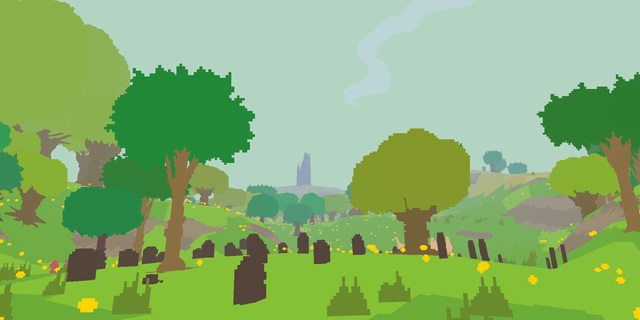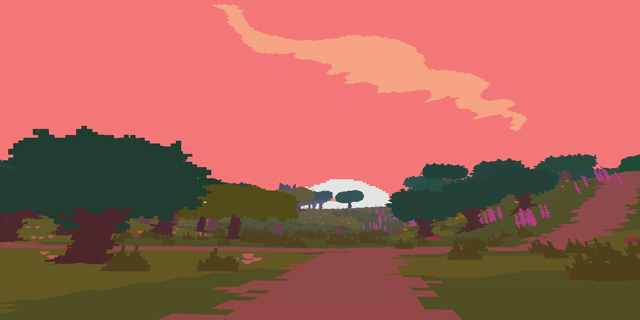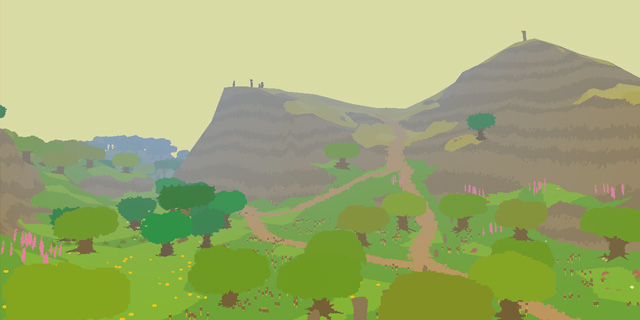
Sandbox games have always been a huge reason people stick with PC gaming for so long. Exploration is a big draw, as well as a nonlinear experience. Also, experiences that push the limits of what can be considered a “game” have always been able to find a bigger niche on PC, due to lower publishing costs.
Proteus plays to these strengths, both as an open-world experience and as an art game, which can be both good and bad, depending on the player; they tend to be an acquired taste. As such, it’s a game that sits far off the radar of most, as its style and theme can be a bit weird. Proteus does have a beginning and an end, yet it lacks the usual gated progression and has no real story. Whether or not it is a “game” is really left for the player to decide.

Proteus is about exploring. You start in a randomly-generated world, and all you can do is walk. The world is generated every time you begin, and will never generate the same world twice. The world is populated with trees and strange alien creatures, though it is not about survival, but exploration, and the world itself offers no threat to the player. As you explore, time passes: the seasons cycle from summer to autumn, and the changes are shown mostly through the color of the trees, which turn orange and red much like you would expect trees to do. The passage of time is affected by the player’s movements.
The style in which the game presents itself is both new and old. It goes for a retro Atari feel, while also presenting itself in first-person. While it’s easy to draw a comparison to something like Minecraft, another procedurally-generated world with retro graphics, there really are no similarities beyond that. The colors and look add to the feeling of being on an alien world, yet keep it a bit familiar. Retro styles have come into fashion recently, especially in the indie space, more due to economics than style. Despite this, Proteus manages to look nothing like any other game.

The sound and music design in Proteus is the icing on the cake. Every sound the game makes is a direct result of the player’s exploration. Sound dynamically changes based on player actions, gradually building as the player explores more of the world. Sound is often chosen to fit what is happening in a game, which leads to a lot of scripted cutscenes in big-budget titles, but Proteus avoids them. One especially noticeable moment is climbing and descending a hill, an otherwise-boring action made significant by the dynamic score.
Proteus is an experience that could only come from an indie studio. It is incredibly experimental, and a clear interpretation of an idea. It’s not for everyone, but for the right audience it’s a wonderful, relaxing trip into another world.
Pros: Relaxing, wonderfully original
Cons: Can be boring for someone looking for a more traditional game, a little short



















